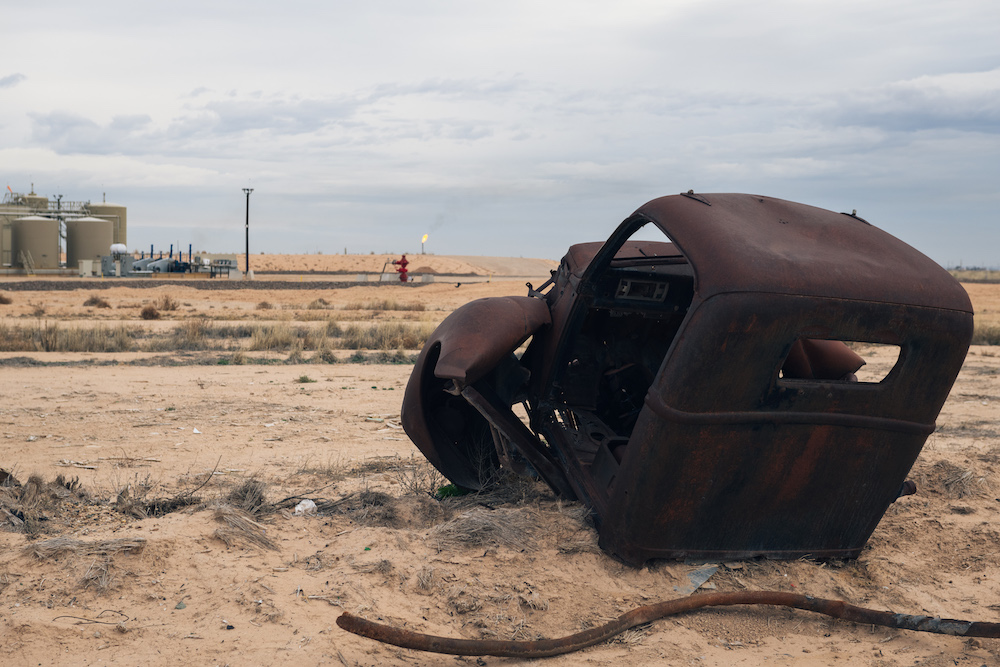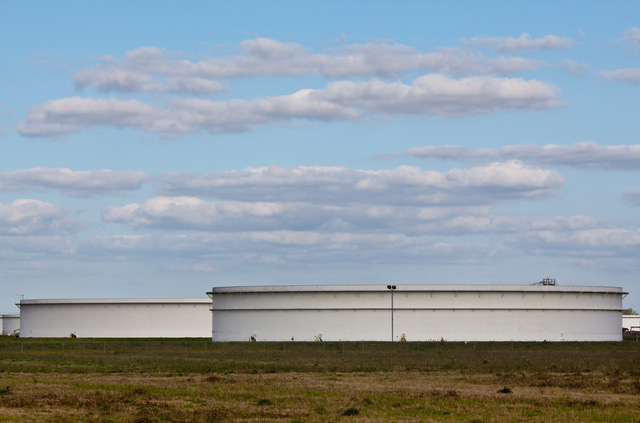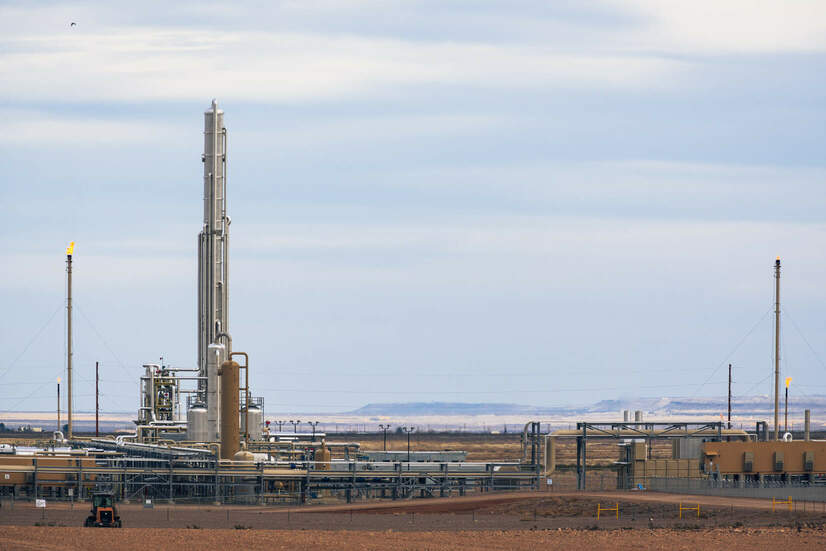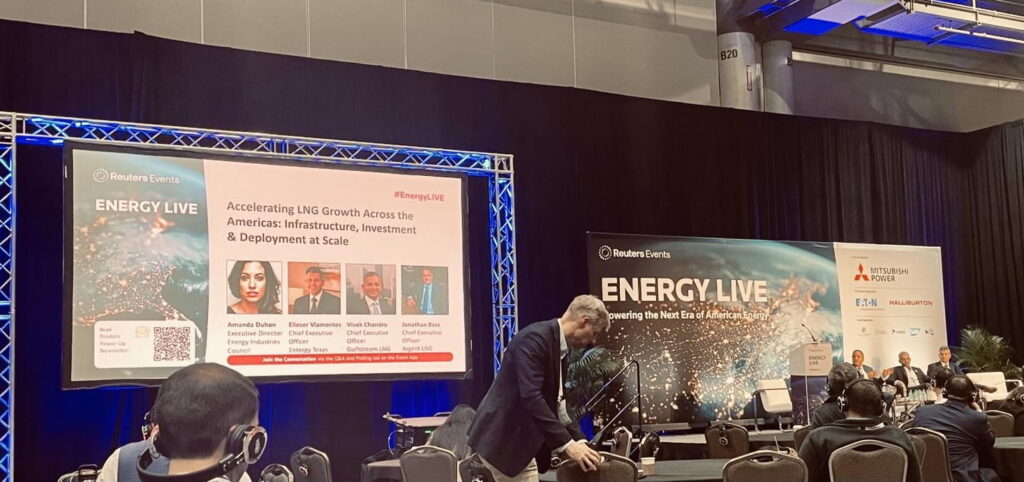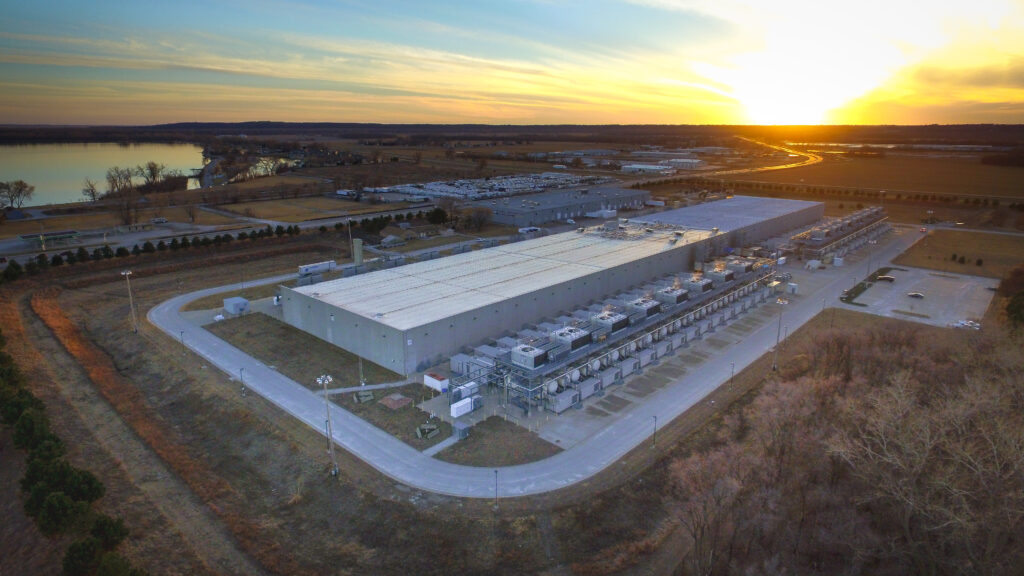The Washington Post reported March 10 that the Trump administration was considering some type of financial help for the failing U.S. shale oil and gas industry, “as industry officials close to the administration clamor for help.” Those officials — billionaire shale CEO Harold Hamm was likely among them — seemed desperate for government assistance because, as DeSmog has documented, their deeply indebted businesses have lost billions of dollars during the fracking boom. Even before the recent oil price war and COVID-19 pandemic, these companies could hardly stay afloat, making cries for some type of corporate welfare likely unavoidable.
But that’s not the same message across the entire oil and gas industry.
At the same time, the head of the American Petroleum Institute — the oil and gas industry’s most powerful lobbying group — said the industry was not interested in seeking a bailout, which didn’t exactly sound like the desperation reported by The Post. It seemed like an odd mix of messaging from the industry.
The idea of bailing out the shale companies was not well received by many politicians, environmental groups, and conservatives. Efforts to directly bail out the shale industry in the federal stimulus package were apparently abandoned.
The next proposed oil industry bailout came March 19 when the Department of Energy (DOE) formalized its intent to buy 77 million gallons of oil to fill the Strategic Petroleum Reserve (SPR), an emergency stockpile of oil. That idea lasted a bit longer than the first bailout proposal, but the DOE killed the idea late on March 25.
On March 26, World Oil magazine quoted DOE spokeswoman Shaylyn Hynes, who seemed to indicate that the agency still wanted to provide assistance to “small to medium size American energy companies and their employees.” Independent shale companies, unlike the oil majors like Exxon and BP, would fall into that smaller size category.
“The American energy sector is a major driver of our nation’s economy and it is being significantly harmed by the impacts of COVID-19 and international market manipulation,” Hynes wrote. “Small to medium size American energy companies and their employees should be provided the same relief being provided to other parts of our economy, and the Secretary calls on Congress to work with the Administration to fund the President’s request as soon as possible.”
That marks two failed efforts to bail out shale companies while the oil and gas industry’s top trade group continued saying the industry didn’t want a bailout. What’s going on here?
“The challenges [the U.S. oil industry] faces today are unprecedented, but they are not an excuse to walk away from the free market principles that have guided this industry for more than a century,” API SVP, Frank Macchiarola. https://t.co/6VAEow7r6G pic.twitter.com/Wr6v4Z5O1q
— American Petroleum Institute (@APIenergy) March 25, 2020
Strategic Petroleum Reserve Purchase Wouldn’t Help Shale
The U.S. shale industry received its first real bailout in 2015 when the 40-year crude oil export ban was lifted under President Obama. This spurred a huge boom in shale oil production because companies could now sell their light oil directly to the rest of the world, without first passing through U.S. refineries.
At that point, the shale industry was running out of markets in the U.S. Refiners couldn’t take any more light oil coming out of shale regions like the Bakken because many U.S. refineries are set up to process heavy oils from Mexico, Venezuela, and Canada.
With no more U.S. buyers, shale firms needed the export ban on domestically produced crude oil lifted, and Congress acquiesced at the end of 2015. By the end of 2019, U.S. oil exports reached levels of 4.4 million barrels a day — a remarkable amount of oil.
In another move that would allow the industry to sell more oil, the government’s proposal to fill the Strategic Petroleum Reserve seemed like another potential bailout for the shale industry.
The SPR reportedly has 77 million barrels of spare capacity and filling it would require somewhere near $3 billion. However, such a purchase would be unlikely to change the financial dynamics of the shale industry. That amount is equivalent to about two months of the current U.S. crude exports. And if U.S. oil producers are only getting current (extremely low) market prices for the oil, it certainly won’t help shale oil producers make the money they need to pay back the wave of debt looming over them.
Daniel Yergin, an oil historian who has been a champion of the industry and was instrumental in getting the oil export ban lifted, recently made this point. “The government may not be able to buy enough oil to prop up the oil market,” Yergin reportedly said, according to E&E News.
There’s another flaw in the plan to bail out the shale industry by filling the SPR. As DeSmog has recently reported, much of what’s being fracked and drilled out of shale regions is not actually considered “oil” but instead an extremely light petroleum known as “condensate,” which means it likely can’t go into the SPR. According to the Department of Energy, over 60 percent of the current oil in the SPR is heavier “sour oil,” while the shale industry produces light “sweet oil” and a lot of even lighter condensate and natural gas.
Topping off the Strategic Petroleum Reserve was never going to save the shale industry.
Oil tanks at the St. James Strategic Petroleum Reserve Terminal connected to Bayou Choctaw, one of four sites on the gulf of Mexico, each located near a major center of petrochemical refining and processing, in this case Baton Rouge, Louisiana. Credit: Julie Dermansky
Shale Companies Have No Long Game, Exxon Does
In a remarkable interview on March 26, CEO Scott Sheffield of shale firm Pioneer Natural Resources added great clarity to why shale companies are unlikely to get bailed out and why the American Petroleum Institute has been touting free markets and opposing bailouts. Exxon has a huge stake in the Permian shale play in Texas, and Sheffield appears to admit that Exxon holds all the cards right now when it comes to any type of shale bailouts.
Crude oil has been slammed amid a price war between Saudi Arabia and Russia and a global economic slowdown. Pioneer Natural Resources CEO Scott Sheffield shares his industry outlook. $PXD pic.twitter.com/8ud4XAPwup
— CNBC‘s Fast Money (@CNBCFastMoney) March 26, 2020
Sheffield appeared on CNBC‘s Fast Money with analyst Brian Kelly, and the two discussed the current oil price war between Saudi Arabia and Russia and how the shale companies and politicians like Sen. Kevin Cramer (who represents the shale oil state of North Dakota) have been clamoring for President Trump to try to get Saudi Arabia to stop the price war.
Sheffield explained why these efforts weren’t going well.
“We’ve had opposition from Exxon who controls API and TXOGA,” Sheffield said. “They prefer all the independents to go bankrupt and pick up the scraps.”
API is the American Petroleum Institute and TXOGA is the Texas Oil and Gas Association.
Kelly then asked, “Is it the big supermajors against the mid and small companies?”
“Exactly,” Sheffield replied. “That is definitely what’s going on.”
For the past two years, DeSmog has detailed the failed finances of the shale industry and predicted that it couldn’t last forever. All the while shale CEOs like Sheffield were pitching a different story to investors.
Kelly asked Sheffield what happens if nothing changes to help the shale industry.
“What happens?” Sheffield said. “As you know there’s about 74 public independents, there’s only gonna be about 10 left at the end of 2021 that have decent balance sheets. The rest are going to become ghosts or zombies.”
Oil and gas company Apache’s cryogenic processing plant at the Diamond facility in the Alpine High shale region of the Permian Basin. Apache announced it would abandon Alpine High earlier this year. Credit: Justin Hamel © 2020
Presumably, Exxon and other companies who can outlast this crisis will gladly pick up the “ghosts and zombies.” This would seem like ruthless behavior from Exxon and the American Petroleum Institute, who constantly tout the jobs created by the oil industry. Wiping out those smaller companies will result in huge job losses in an industry already threatened by increasing automation.
However, in another rare moment of honesty from an oil company CEO years earlier, former ExxonMobil head Lee Raymond made clear why helping Americans wasn’t a concern of his when he was running the international oil major.
According to Steve Coll’s book Private Empire, when Raymond was asked if Exxon would build more refineries in the U.S. to help America, he replied, “I’m not a U.S. company and I don’t make decisions based on what’s good for the U.S.”
Raymond is now on the board of JPMorgan Chase, the bank, which according to The Washington Post, is one of the biggest lenders to the fossil fuel industry. That’s probably not good news for shale firms either. Raymond’s successor was Rex Tillerson who left Exxon to head the Trump State Department for a period.
The shale industry, on the other hand, is only a decade old and simply does not have the political power of Exxon and its apparent surrogate, the American Petroleum Institute. Exxon may be likely to get its bailouts while making sure that smaller, less stable shale companies fail.
One immediate boon for Exxon and the other major oil companies just came from the U.S. Environmental Protection Agency (EPA), which has essentially suspended enforcement of environmental laws for the industry, citing the coronavirus pandemic as justification. This is much more beneficial to the large companies who produce the oil but also own pipelines and refineries. Shale companies just produce oil and gas and don’t own refineries.
And who was lobbying for this bailout for the industry? The American Petroleum Institute. It’s clear that the trade group, with the backing of Exxon, is good at getting what it wants from the Trump administration. But that’s bad news for the shale industry.
Too Much Bad Debt
Current market turmoil aside, the death of many shale companies was going to be inevitable. The current duel crises of an oil price war and the coronavirus are just speeding it along.
Industry consolidation, in which two or more shale companies would combine, is being discussed as an option within the industry. However, oil and gas firm Occidental’s recent purchase of Anadarko for its shale assets has quickly turned out to be one of the worst major acquisitions in the history of the industry.
CNBC‘s Kelly asked Sheffield about the option of consolidation as a possible survival strategy for the shale industry.
“Consolidation can’t happen because too many companies have too much bad debt,” Sheffield said.
Another remarkable admission from a shale CEO.
With the current crisis and Exxon and the American Petroleum Institute apparently working against the shale industry, it probably won’t be a long wait until shale is just a bunch of “ghosts or zombies.”
Main image: Antique truck rusting in the shale oil fields of Reeves County, Texas, in the Permian Basin. Credit: Justin Hamel © 2020
Subscribe to our newsletter
Stay up to date with DeSmog news and alerts


